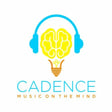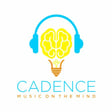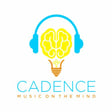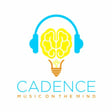Become a Creator today!Start creating today - Share your story with the world!
Start for free
00:00:00
00:00:01

Episode 05: Why Do We Like the Music That We Like?
Is there music that is considered universally great? Why do some composers from 18th century European countries still sell out concert halls hundreds of years later, while most of their contemporaries have been forgotten? Is their music really that much better? Or have we convinced ourselves that it’s better because we know that we're supposed to like it?
Transcript
Evolution of Music Tastes
00:00:00
Speaker
Welcome back to Cadence, the podcast where we explore what music can tell us about our minds. We can all agree that not all music is great, and our tastes for music change as we delve more deeply into one genre or another, or we grow up. We develop expertise, and with expertise come higher standards. If you're a passionate musical file, no matter which genre you're into, you'll have an opinion on which pieces, bands, or individual musicians are better than others.
00:00:27
Speaker
Because most of my musical education and experience has focused on classical music, my standards for that genre are pretty high. When someone plays a solo piano version of a great orchestral piece, for example, this is the kind of music you often hear in airports or massage parlors, and it's been simplified to appeal to people who don't really know the piece or who don't really listen to classical music, it's really annoying to me.
00:00:52
Speaker
But much of the music that I love leaves much of the world's listeners cold or bored.
Popularity of Composers: Cultural or Superior?
00:00:56
Speaker
People often tell me they like all kinds of music, but they just don't like opera.
00:01:01
Speaker
But is there music that is considered universally great? Why do some composers from the 18th century European countries still sell out concert halls hundreds of years later, while most of their contemporaries have been forgotten? Is their music really that much better? Or is it simply a cultural phenomenon? That is, have we convinced ourselves that it's better because we're supposed to like it, and now it's fashionable to think Mozart was a genius, but Salieri was just a hack?
Classical Music: Division and Universality
00:01:40
Speaker
There's no better expert, in my opinion, on this very question than music historian, composer, and educator Robert Greenberg. His lectures for the great courses have almost single-handedly built that company's reputation into a world-class purveyor of information. I asked Bob why classical music is so revered, at least among music academicians.
00:02:02
Speaker
I hate that phrase, classical music, because it creates an artificial division and it creates a sense of, oh, elitism that really isn't there. I would just say composed music or concert music, music that's essentially heard in a concert setting, but I would try to avoid anything that creates that subjective sense of distance from the listener to the music.
00:02:25
Speaker
I think the first and most important thing to realize is the people who created the music, whether we're talking about dead Euro white males from a phallocentric empire or Jimi Hendrix. These are people just like us. These are working class and middle class people. Composers are not rich people. They might work for rich people because that's how you make a buck.
00:02:47
Speaker
But they're not rich people per se. They're people who are great artisans and crafts people who use their ability to make music to make a living. Ain't that the truth? And as a result, all music is relevant to its time and all really good music, like any good art, becomes universal. It transcends its time and place because it has enough metaphor, enough analog, enough pure beauty to correspond or to communicate with people at any time and any place.
00:03:16
Speaker
But why in particular does music from the 18th and 19th century European countries seem to be considered great by so many people?
Timeless Appeal of Beethoven and Mozart
00:03:24
Speaker
Beethoven, Mozart, Bach, these are household names in much of the world. What makes their music better? Is it just a cultural phenomenon? We're supposed to like it because we were told we should and so we do. Or is it just that we've listened to it more and more often so now it's familiar to us?
00:03:40
Speaker
Why should people listen to music written by dead white Euro males? Because A, it's beautiful. B, it tells us all kinds of things just like Shakespeare's dramas and comedies tell us things, just like Dostoyevsky's novels tell us things that transcend time and place. It's fun.
00:04:02
Speaker
It's beautiful. It extends our life.
Impact of Context on Music Style
00:04:05
Speaker
It reduces hair loss and renders us susceptible to divine influence. But can a person just listen to composed music from 18th century Vienna and enjoy it on a first listen? Or do you need to do some homework first? There's a number of different things involved here. There's the musical experience and then there's the context because context is everything.
00:04:26
Speaker
Music created in Vienna in 1780 sounds the way it sounds generally because there were environmental pressures put on the creators of music to write a certain kind of music. Rock and roll in the 1960s sounds the way it does because there were environmental circumstances that allowed the creators of that music to experiment in a certain way. You know, the industry
00:04:50
Speaker
And the environment creates style. And then it's up to the particular musician to fill that style in a way that expresses his or her own vision. So I think the first thing you need to do is get something that will help give you that context, which means to read a good book on how to listen to music.
00:05:10
Speaker
so that you have something to hang your ear on. This makes a lot of sense to me because I often have to listen to music more than once to see if I like it. I know that sounds ridiculous. I mean, liking something is an immediate experience, right? But too often in the past, I've dismissed some piece of music or some performance or even an entire genre on a first listen only to learn to love it once I've figured out what the composer or performers are trying to say.
00:05:36
Speaker
But there's lots of music that does just move me right away, though I must admit that not all of it is any good.
00:05:52
Speaker
There's basically two chunks of music. There's the music we grew up listening to when we went through puberty, and then there's everything else. The music we grew up listening to when we went through puberty, when our bodies changed, when we sexualized, when we became aware of a world of adult experience that is both terrifying and magnificent at the same time, there's no music in the world that can replace that. Whatever it was, for me it was the Beatles and the Rolling Stones, Led Zeppelin.
00:06:18
Speaker
Nothing can ever replace that because that music is who I am. And then there's everything else. Now, luckily, since I was a piano player, I was playing Bach and Brahms and Mozart and Beethoven. So that's also my music. I also identify that music with the coming of age, but not like the rock and roll. And so we all have that music that we basically understand because it resonates with who we were when we were going through that.
00:06:47
Speaker
And we can't expect to understand Mozart. We can't expect to understand music written in 1785 using the same gut that we understand our music that we grew up with. We've got to know something of the life of the composer. We should know something of the time. We should know something of the taste and what people were demanding from composers. And then we can appreciate what an incredible
00:07:12
Speaker
composer Mozart really was. So I think we do need to know the times. We do need to know the composer's environment and something of the composer's life. Just the same way we knew about John Lennon and Paul McCartney because we grew up with that. I grew up with that. And I understood their songs vis-a-vis their lives. So it's just a matter of a little education.
Predicting Music Enjoyment: The Brain's Role
00:07:34
Speaker
So what's happening in our brains when we're listening to music that we like? How is that experience different from listening to noise or music that we don't like? Here's Valerie Salampour, a music cognition researcher based in Canada whose work I've long admired. If you haven't heard a piece of music before, what makes you like it for the first time? What we found is that it really has to do with how the superior temporal gyrus, the part of your brain that records all the auditory information that you've heard in the past,
00:08:03
Speaker
how sounds are organized in time and so you can think about the music that you've heard through your childhood, the music that's been very relevant through your teenage years, what music your parents may have played for you.
00:08:15
Speaker
and just generally what music was in the background. So all of this gives your brain some information about how sounds are organized in time. And so this could have been oldies, or it could have been heavy metal, or it could have been jazz, or it could have been classical music. And of course, all of these genres have very different rules of how sounds should be organized. And so that information, of course, creates templates in your brain and the superior temporal gyrus. And this is something that has been demonstrated now for several decades
00:08:46
Speaker
That's because Valerie and her colleagues have found that when we listen to music, we're tracking it and predicting what's gonna happen next. It's really important for us to be able to take the information that we've acquired throughout our lives and be able to make future predictions and
00:09:01
Speaker
If this has a positive consequence for us, if there's something good waiting for us, then the reward systems and the subcortical reward systems might be involved. Essentially, one region that we're very interested in is the nucleus accumbens. And the idea here is that the nucleus accumbens essentially makes predictions about things that could potentially be rewarding to you.
00:09:23
Speaker
But what's neat is that in humans, these regions are very much interconnected with the cortical systems of the brain that are involved in sort of higher order thought. And a lot of this involves more complex functions such as sequencing, pattern recognition, understanding some complex patterns. And this is essentially what music is. Music is essentially a cognitive reward because we do have the capacity to be able to
00:09:51
Speaker
understand and appreciate how these sounds are organized over time. And as our brain starts to pick up on those patterns, because these systems are then linked back to these more subcortical phylogenetically ancient systems that we share with other animals that
00:10:08
Speaker
give us that motivation and the drives and the anticipation and excitement to sort of go on, then that way music can become very rewarding through these interactions, essentially. So maybe there is something about music by composers whose influence has lasted hundreds of years that helps us predict what's coming, but still keeps us interested and surprised long enough.
00:10:32
Speaker
I asked Bob Greenberg why we still hear Mozart's music in the great concert halls and opera houses, and even in films and commercials, but not his more successful contemporary salieri. Mozart's is better. First of all, no one could write a better tune.
00:10:47
Speaker
than Wolfgang Mozart. His approach to melody and to the human voice and to instrumental voices which mimic human voices in Mozart's music is just superb. There is something called genius and he had it. He had a sense of timing. He also had a sense of harmonic richness in his approach to melody that give his melodies extraordinary flexibility
00:11:09
Speaker
Again, you look at its phrase structures. They're very rarely four plus four plus four plus four, which means a kind of four square phrases where everything
00:11:17
Speaker
antecedent consequent is happening in the same number of beats. Tremendous flexibility to phrase. Tremendous flexibility in approach to what's called chromaticism, that is, using pitches outside of
Mozart's Mastery of Melody
00:11:28
Speaker
the key in which he's in. Just enough chromaticism to give a sense of depth and high color to what might otherwise be a fairly banal idea. Mozart's themes also tend to be filled with motivic richness.
00:11:42
Speaker
Unlike Beethoven, who loved to use just a single idea to generate his themes, Mozart loved to combine an extraordinary number of different ideas to create his themes. Ah, yes. Well, that explains why I love the Act II finale from The Marriage of Figaro so much. Every time you think it's over, Mozart surprises you with another set of great melodies. And every character in the show has his or her own motif, so you can follow all kinds of predictable and unpredictable patterns.
00:12:11
Speaker
And each of these motifs are in line with their personalities. The Count is angry and regal. His scheming valet, well, he gets the last word and he inserts short quips everywhere. And then comes the drunken gardener.
00:12:45
Speaker
Another amazing thing about Mozart is even as he works through a piece, even as you hear contrasting ideas, if you take a close look, and this is what I do as a composer, if you take a close look at Mozart's thematic development, there's always an element of what just happened in what's happening now.
00:13:03
Speaker
So there's a sense of rhetorical flow. It's like someone's talking to you very clearly with a tremendous sense of development and storytelling. Mozart tells a great story and his rhetoric is fantastic. He was the greatest musical dramatist who ever lived. And I'm not just talking about opera. I'm talking about all those forms that grew out of opera, like the concerto, the techniques that grew out of opera returned into the symphony.
00:13:31
Speaker
Mozart's timing is fantastic. His ideas are wonderful. Poor Salieri. You know, the whole assumption of all these books and plays and movies that Salieri killed Mozart, it all started with Pushkin, Alexander Pushkin, who wrote a play, I think it was in 1828, called Salieri and Mozart.
00:13:56
Speaker
And the premise of the play was that Salieri had worked so hard his whole life to get to the point where he was.
00:14:04
Speaker
technically able to write these very popular operas. And he was at the top of his world. And then this idiot, this moron, this child shows up and shows him just how inadequate he really is. In the original Mozart and Salieri play, Mozart wasn't even a real person. He was just a cardboard cutout. But he was that person that shows all of us how inadequate we really are.
00:14:31
Speaker
And Salieri, of course, decides to kill Mozart because he is an affront to him and his god. This cannot be allowed to happen. And that message caught on. You know, Rimsky-Korsakov turned it into an opera, and Peter Schaeffer turned it into a play, and Milosz Forman turned it into an Academy Award-winning movie, and now we all have the wrong impression of Salieri and Mozart. But back to your question. What makes Mozart so good? Everything.
00:14:58
Speaker
everything. He was a total composer. He had command of every aspect of what he did. He wasn't born a composer, but he was made into arguably the greatest one who ever lived. Well, I must admit that Bob is preaching to the choir here, since I agree with him. Mozart was pretty special. But it wasn't just his own genius that made Mozart who he was. We can't deny that the time and place in which he was born and worked helped him out quite a bit.
00:15:26
Speaker
Mozart had been born, God forbid, on North Sentinel Island, which is an island of Stone Age tribes, or a Stone Age tribe in the middle of the Indian Ocean, that skill set would go unused and uncelebrated. I could suggest that many Mozarts have been born in the last 50 years. Many of them are in high tech. Steve Jobs was a Mozart. That's how it is.
00:15:54
Speaker
But his environment used his skill set in a very, very different way. So I think where our gratitude must lie is those wonderful artistic eras like 15th and 16th century Florence, 18th century Vienna, where everything lines up properly, where the money lines up, where the audience lines up, where
00:16:17
Speaker
The talent lines up and the talent is able to exploit its skill set to a degree that Universal Art has created.
00:16:25
Speaker
And of course, not everyone will agree with Bob and me that Mozart wrote great music. Our musical preferences are so individual. And this heterogeneity in music preferences isn't just speculation. Scientists like Valerie have experienced it firsthand. Yeah, I think this is really fascinating that you can take something that has such subjective responses for different individuals, again, because they do have
00:16:50
Speaker
different information coming in. So they're going to get a different response out of that. And we found that when we take a very homogenous group of students from Montreal, they all had such different tastes in music. And the music that is really intensely pleasurable for them, that gives them chills, was so different. It was just all over the board.
00:17:12
Speaker
We have lists of this published online, but you can see that the genres are ranging from classical to psychedelic to jazz to very worldly type of music and some very abstract things, heavy metal, new age, so really all over the place. And what was neat about it is that one person's intensely pleasurable music did absolutely nothing for the next person.
00:17:37
Speaker
It's not that they hated it, but it just didn't move them at all. It didn't do anything. I mean, of course there were pieces that they also hated, but for the most part, the peak moments where somebody else gets chills and they're experiencing that extreme high, other people were just meh.
00:17:52
Speaker
So that was really neat.
Diverse Music Tastes and Personal Experiences
00:17:55
Speaker
So that way we could use that as a control by trying to make sure that we had similar acoustical properties in our experimental and control conditions, but at the same time be able to ask people to bring in their own music, which is really important because when you're doing music studies it's difficult for the experimenter to be able to pick music that
00:18:15
Speaker
will really move all the subjects in the study. But if they're bringing in their own music, then that's a different scenario because they can bring in things that really move them. So what do we know about how these preferences are developed? Is it all just about puberty and hormones? One example is a study that we did recently where we took pieces of music that people like, that they have selected themselves and entered those into music recommendation systems.
00:18:40
Speaker
that match on acoustic similarity and also match on similar styles of music as preferred by other people who also like this kind of music. So collaborative filtering, that's what that would be called. So the idea here is that if you hear a new piece of music that sounds similar to
00:18:59
Speaker
things that you've heard in the past, you're more likely to like it. So that speaks to the experience part that you mentioned. So you've had some experience with these sounds and you've liked it before. That's the key. It's not just hearing something over and over again. It's more, have you associated this with something positive in the past? So has it somehow been linked to your emotion centers before? And then can you take that information and then elaborate on it to create something new?
00:19:23
Speaker
then you're more likely to like that piece of music. And of course, a lot of artists do this already. They take songs that we're familiar with from the 60s, 70s, 80s and take elements of those and then reintroduce them with new music so that it can sort of tug at your strings.
00:19:40
Speaker
Valerie also pointed to work in other fields that shows that our emotional reward systems are disproportionately active in our teenage years because everything is exciting and new. And it's true that we do remember those years better than much of the rest of our lives. But there is a limit to how often and how much ACDC even I can listen to. But I don't seem to get tired of Mozart, at least not as quickly. Valerie helped me understand why. If you think about what music is, it's really just a sequence of sounds and
00:20:11
Speaker
One of those sounds independently has no reward value but then somehow when you arrange it in at least one or more patterns then it can become very rewarding. Now what's interesting about this is that it's not just a single pattern that you're following. It could get very complex when we try to think about classical music and how many different patterns are going on at one time.
00:20:33
Speaker
So there are very short-term patterns that are sort of second by second, and then there are long themes that are sort of going on. So your brain's keeping track of all of these as you're listening to the music. Of course, a lot of this is likely to be implicit. You may not consciously be aware of how your brain is tracking, but all of these have the potential to target these prediction regions in the brain.
00:20:54
Speaker
And some of those prediction regions are involved in just sort of keeping track and wanting the next sound that you're expecting based on your calculations of how music should be organized in the past. And then some of it could be pleasant surprises. But just imagine how many different systems in the brain must be going on at once and linking to your reward systems for you to pick up on all the different patterns.
00:21:20
Speaker
and keep track of them and your expectations will change second by second as well as the music takes different turns. Another example of this might be jazz for example if there is a lot of improvisation in jazz if you take someone who's never heard jazz before they might not like it as much because they don't have the templates to really appreciate it so it's not very exciting for them because they can't form any predictions but then
00:21:44
Speaker
If you take someone who really appreciates jazz and then start playing some improv, that's very powerful because they have the templates to understand it and kind of make some predictions about where it's going, but they're still going to be surprised. These days, we can access really high-quality recordings of pieces by great composers like Mozart at her fingertips. But I still think that going to live performances adds a lot to the music and maybe even makes or breaks the careers of many a musician. Here's Bob Greenberg.
00:22:13
Speaker
About 15 years ago, I had a great gig, which took me to Europe a couple of times a year to speak with a major international organization. And one of those trips took me to a place called Nordweg-on-Z, Nordweg-on-the-Sea, about 30 miles outside of Amsterdam on the North Sea, this huge, magnificent conference center with all these international brainiacs there. It was great having lunch with the faculty. It was wonderful.
00:22:42
Speaker
And I had lunch one day with this futurist. He was a very famous guy at the time. And we're sitting there having lunch. And we're talking about stereos because I fancied myself an audio file at the time. And he told me what he considered, what he thought the future of listening to music was. And he described a isolation chamber where you would lie down in some kind of gel-like fluid that was exactly your body temperature. And you would be listening through these amazing headphones
00:23:09
Speaker
and you wouldn't be seeing anything. The point is you would be isolated from everything except the music. And I guess I was looking at him with horror. And he finished and he was very pleased with himself. Then I just simply asked him, I said, what's the coolest musical experience you ever had?
00:23:29
Speaker
And he told me about seeing Carlos Santana in the Albert Hall when he was 15 years old. And it was like his coming of age. And everyone was smoking pot. And even though he was, and he got totally stoned, and all the girls were looking amazing, and bop, bop, bop, bop, bop, bop, bop. And I just said to him, duh, a live performance.
00:23:49
Speaker
Not because you're isolated, the opposite. Because you were sharing a tribal experience with our tribe. We've evolved as a tribal species. The more we share with our fellow human beings, the realer, the more powerful, the more vital, the experience. That's what live music is about. It's not just that you're part of the performance because the performers are playing off of you. It's also you're part of the audience, which is part of the performance.
00:24:16
Speaker
And in a great performance, and not every performance is great. We all know that in a great performance, magic happens that could never otherwise happen. Hey, why don't we still go to the movies? Big screen, big sound to enjoy it with the group. All right. If the jerk in front of us is playing with her phone, we want to kill her. If the moron behind us is talking, we want to kill him.
00:24:40
Speaker
If the person next to us is chomping down on popcorn, we want to kill them all because they're bothering us. But the communal experience is still something we're hardwired to do. It's primary to who we are and what we are. And that's where magic happens.
The Communal Experience of Live Music
00:24:59
Speaker
Magic will never happen listening to a recording.
00:25:01
Speaker
I'm sorry. And Valerie agrees too. And she suggested another way live performances can be powerful. The way that the reward system works is that you can get more dopamine release. And dopamine is sort of a chemical in the brain that makes things very rewarding for us, if you will. So the way that the system works is if you make a prediction and you sort of have some idea of how things are going to go, but you're not exactly sure what's going to happen.
00:25:31
Speaker
And then if it's a pleasant surprise, then you get sort of maximal dopamine release. And that's when things get stamped in and it's a really good feeling that keeps you going. Whereas if things are too predictable, then you don't really get any dopamine release at that point. And on the other end of the spectrum, if you have no predictions, then you can't really get dopamine release. So it's really a U-shaped curve that way.
00:25:54
Speaker
And the idea is that at live concerts, you sort of have some idea how things are gonna go, but then the improvisation or just the randomness of it gives you those pleasant little surprises along the way that make that so much more powerful because you can't predict exactly where it's gonna go, but you know it's gonna be in the lines of what you like.
00:26:12
Speaker
We'll be exploring live performances in more detail in later episodes, but I wanted to hear from a conductor. What factors influence his decisions on what pieces of music to present? After all, he's the one at the podium at the helm and essentially in charge of the experience for the audience. So I talked to Eric Dudley. He's the conductor of the orchestra at the San Francisco Conservatory of Music about how he separates the great from the good music.
00:26:37
Speaker
It takes some time, especially if it's a piece that has no prior experience, no recording, nobody's performed it anywhere, and you're just looking at a raw score. So obviously it takes the amount of time that you as a musician have to take to get to know the piece of music completely fresh.
00:26:54
Speaker
And for me, if it's a full orchestra score, that's going to be maybe even weeks to actually sit with a score and fully internalize it and break it down on an analytical perspective and all that kind of a thing. So to really get to know it and to know the quality of it is certainly like starting a relationship with a human being where you have to just get to know them right out of the gate.
00:27:18
Speaker
That being said, I think that after seeing a number of scores for a number of years and kind of having a sort of instantaneous litmus test developed, I think that sometimes I will receive a score and it will immediately speak to me as to its quality. Sometimes you can just tell that you get a piece of music and it's like,
00:27:38
Speaker
Actually, just on first visual examination, this isn't extremely well organized. It's not extremely idiomatic. You can sort of tell as a conductor, especially with an orchestral score, it's just not going to work. Once you get past that standpoint, the very obvious, is it well written, is it carefully crafted, that kind of a thing, then I think it's that more detailed discernment period where you have to sit with it for a while and see
00:28:04
Speaker
okay, what are the salient features of this piece that immediately jump off the page to me? If I sit down and attempt to hear it at a stretch, is this something that is truly compelling? That I know that when those colors come off the page, is it gonna grasp the ears of the musicians and the ears of the audience? So those kinds of things take a little bit longer. As a performer, I want to be sure that I'm performing music that at least really interests me.
00:28:32
Speaker
And if it interests me, then I think I can find a way as a performer and as a conductor, the orchestra can find a way, if I'm showing them that I really believe in this work, to then make it believable and accessible to the audience. I guess the sort of underlying thing that I look for in any work is some kind of discernible through line.
00:28:56
Speaker
It doesn't have to be a narrative, it doesn't have to be programmatic, it doesn't have to be any of those things that are so much a part of a lot of music of the last several hundred years, but there has to be some kind of discernible momentum and tangible experience that underlies the music from start to finish.
Conveying Universal Truths Through Music
00:29:17
Speaker
So where does this leave us in our search to understand what makes music great? Well, first, the music has to tell us something true about the human experience, either universally or at least in the context in which it was written. It also needs to tickle the templates in our superior temporal gyrus, those that represent our past experience with sound, and help us recognize meaning and organization in what's reaching our ears.
00:29:46
Speaker
It also should give us the sense that something great is about to happen. Help us predict the reward that is gonna come some point during the listening experience. And finally, it should surprise us just enough to keep us interested.
00:30:02
Speaker
Back to Valerie. If preferences are so personalized, then why do movie soundtracks work? And it's this idea that there are some universalities. So for example, in our homogenous group of students from McGill University who had very heterogeneous tastes in music, there was one piece of music that just kept coming up over and over and over again. And it was in the classical genre and it was extremely popular.
00:30:27
Speaker
as a chill-inducing song and that was a piece of music and that was Samuel Barber's Adagio for Strings and it was incredibly powerful so a little bit of research showed that it's actually been used in something like over 200 films and various sorts of media and also at funerals it's played so clearly it's doing something to people and giving them those intense feelings more universally
00:31:03
Speaker
Now, that was the most popular piece in the classical genre. And then we looked at the other genres. So in the techno or trans genre, the top piece of music was DJ Tiesto's version of Barbara's Adagio for strings.
00:31:27
Speaker
So there you have it. Apparently, Barber was on to something, and his adagio for strings seems to have hit that sweet spot between setting up expectations and surprising you over and over and over again.
00:31:44
Speaker
Thank you for listening to this episode of Cadence. You can find us online at the ensembleproject.com slash Cadence, at Facebook slash Cadence podcast, and on Twitter at Cadence podcast. You can also get in touch with us at cadencemind at gmail.com. Cadence is produced by Adam Isaac and me, Andre Viscontos. I also created and write the show. The music in this episode was provided for us by acclaimed New Zealand composer, Rian Sheehan.
00:32:11
Speaker
Check him out at reinshian.com. You can find me on Twitter at intravis. Cadence is generously supported by the Germanicos Foundation. Join us in two weeks for our next episode in which we continue our exploration into what music tells us about the mind.














